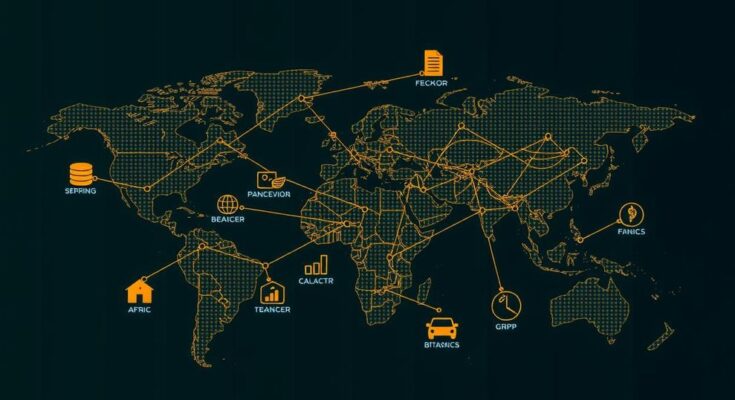Carlos Lopes discusses Africa’s fiscal challenges, emphasizing liquidity issues over debt. He critiques credit rating practices and advocates for systemic reforms in international finance. Lopes believes Africa has significant growth potential in climate, technology, and demographics. He calls for enhanced domestic resource mobilization and a unified approach to combat illicit financial flows. With optimism about economic prospects, Lopes urges for Africa to shape a more inclusive global financial system.
Carlos Lopes, an economist and former Executive Secretary of the United Nations Economic Commission for Africa, provides critical insights into Africa’s economic challenges in light of the forthcoming 4th International Conference on Financing for Development in Seville in 2025. He emphasizes that Africa’s issues stem from liquidity access rather than the nominal debt level of approximately $1.1 trillion, which is manageable in the context of global finance. Lopes argues that Africa suffers from unfavorable ratings by credit agencies, which do not accurately reflect the continent’s economic reality.
He dismisses calls for drastic reforms in response to debt concerns, suggesting that while multilateral reforms may provide increased funding, these will be offset by reduced bilateral Official Development Assistance (ODA). Lopes identifies three core issues within the international financial architecture: the need to regulate rating agencies, amend Basel III regulations to facilitate liquidity access for local banks, and to recognize and value Africa’s investment opportunities particularly in climate solutions, demographic advantages, and technology.
Domestic resource mobilization has seen slight improvements, growing from 15% to 17% fiscal pressure, albeit still lower than the global average. While recognizing the potential for improvement, Lopes cites commodity dependency and external market volatility as constraints. He also addresses the pressing issue of illicit financial flows (IFFs), highlighting the necessity for a global solution to tackle this multifaceted challenge.
Looking ahead, Lopes expresses optimism regarding Africa’s economic growth, noting that nine of the twenty fastest-growing economies are in Africa. He believes that strategic reforms in international taxation and digital currency systems, alongside the development of necessary skills and technology, will enable Africa to participate effectively in the evolving global financial landscape. He highlights the imperative for Africa to play an integral role in shaping a financial system that is both fair and inclusive, advocating for reforms that extend beyond mere concessional lending.
In summary, Lopes’s perspective underscores the importance of structural and systemic changes within the international financial architecture to not only assist Africa but to foster comprehensive growth and support innovative solutions to contemporary challenges.
The discussion surrounding Africa’s financial landscape is timely, especially in anticipation of the 4th International Conference on Financing for Development. Carlos Lopes, who has held significant roles within the UN and academia, brings attention to the continent’s unique challenges and opportunities. His insights reflect broader themes of economic policy, investment dynamics, and the necessity for global reforms that recognize Africa’s potential beyond traditional narratives of risk and debt.
In conclusion, Carlos Lopes articulates a vision for Africa that calls for a nuanced understanding of its economic landscape. He advocates for critical reforms to national and international financial systems, emphasizing the continent’s opportunities in climate, technology, and demographics. By addressing the structural limitations and advocating for a more equitable global financial architecture, Africa can transform its fiscal challenges into pathways for sustainable development and growth, ensuring it is not left behind in an evolving economic paradigm.
Original Source: www.un.org




